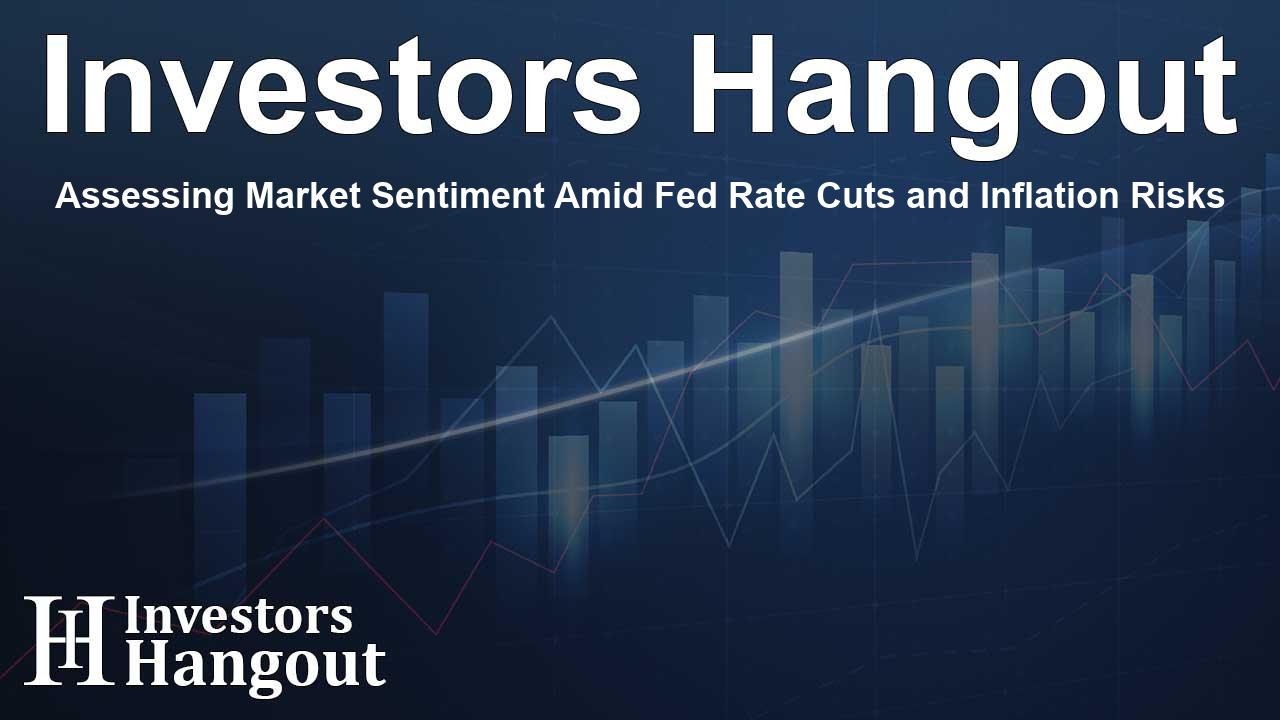Assessing Market Sentiment Amid Fed Rate Cuts and Inflation Risks

Understanding the Current Market Landscape
In today's economic climate, a cautious outlook is justified, particularly regarding reflation risk. This concept has been widely discussed, especially following the decision of the Federal Reserve to implement a third interest rate cut this year. Market participants are keeping a keen eye on how these changes might impact ongoing economic stability.
The Federal Reserve's Decision Impact
Recently, the Federal Reserve lowered its target interest rate by a quarter point, bringing it to a range of 5.25% to 5.50%. This decision was anticipated, causing initial market reactions that were less favorable than expected. Instead of a boost, we observed Treasury yields rising sharply, while stock prices took a significant hit.
Current Market Reactions
For instance, the 10-year Treasury yield surged to 4.52%, marking its highest level since May. Concurrently, the S&P 500 experienced a decline, falling by 3% as investors responded to the shift in policy.
Factors Leading to Caution
Several factors contribute to a cautious sentiment among investors. Firstly, the Fed’s attempt to downplay reflation risks raises concerns. Furthermore, there is the increasing uncertainty regarding the implications of upcoming policy changes under the new administration, alongside potential government shutdown risks.
Government Uncertainty
As the government funding deadline approaches, the dynamics in Washington create additional uncertainty. With the potential for a government shutdown, nervousness among investors is palpable. How lawmakers will negotiate to avoid funding gaps remains to be seen, especially with the need for a new budget before nearing the fiscal cliff.
Market Performance and Economic Outlook
Despite the turmoil, the U.S. economy is reportedly performing well relative to global peers. Fed Chairman Powell emphasized that the economy is thriving, but questions linger about the sustainability of this growth amidst major policy shifts concerning imports and taxes.
Policy Change Implications
Debates surrounding the effectiveness of proposed import tariffs and tax cuts are ongoing. Investors are scrutinizing how these policies will impact the economic landscape moving forward, particularly as uncertainty clouds the horizon for 2025.
The Role of Interest Rates
Interestingly, the impact of the Fed’s recent rate cuts on market sentiment is under scrutiny. There’s a general sentiment that further declines in rates might not yield the positive results previously anticipated, especially in the light of slowing inflation.
Market Signals
Observations highlight that the 2-year Treasury yield has increased significantly, indicating a market expectation for a pause in rate cuts. Additionally, futures markets are currently signaling a strong probability that the Fed will maintain current rates during the next Federal Open Market Committee meeting.
Inflation Outlook and Investor Sentiment
The Fed has revised its projections concerning rate cuts in the upcoming years, which has further complicated the investment landscape. With a newer outlook indicating only two anticipated cuts in 2025 instead of four, investors are responding by reevaluating their positions.
Conclusions Drawn
Overall, as investors grapple with understanding the full impact of these variables, both sentiment and strategic positioning are crucial. The call for a reassessment of expectations and profitability has led many to take profits this year instead of holding positions into the next.
Frequently Asked Questions
What is reflation risk?
Reflation risk refers to the potential for inflation to rise significantly in response to economic policies, leading to concerns about how it may affect markets and investments.
How did the Federal Reserve's recent decision impact the market?
The Federal Reserve's latest interest rate cut led to increased Treasury yields and a drop in stock prices, indicating a negative market reaction.
Why is investor sentiment cautious right now?
Investor sentiment is cautious due to uncertainty stemming from potential policy changes and fears of a government shutdown, alongside inflation concerns.
What economic indicators should investors watch for?
Investors should monitor Treasury yields, stock market performance, inflation rates, and any developments in government fiscal policy.
What might happen if the government shuts down?
A government shutdown could lead to furloughs of federal workers and complications in essential services, which in turn might destabilize market confidence.
About The Author
Contact Riley Hayes privately here. Or send an email with ATTN: Riley Hayes as the subject to contact@investorshangout.com.
About Investors Hangout
Investors Hangout is a leading online stock forum for financial discussion and learning, offering a wide range of free tools and resources. It draws in traders of all levels, who exchange market knowledge, investigate trading tactics, and keep an eye on industry developments in real time. Featuring financial articles, stock message boards, quotes, charts, company profiles, and live news updates. Through cooperative learning and a wealth of informational resources, it helps users from novices creating their first portfolios to experts honing their techniques. Join Investors Hangout today: https://investorshangout.com/
The content of this article is based on factual, publicly available information and does not represent legal, financial, or investment advice. Investors Hangout does not offer financial advice, and the author is not a licensed financial advisor. Consult a qualified advisor before making any financial or investment decisions based on this article. This article should not be considered advice to purchase, sell, or hold any securities or other investments. If any of the material provided here is inaccurate, please contact us for corrections.
